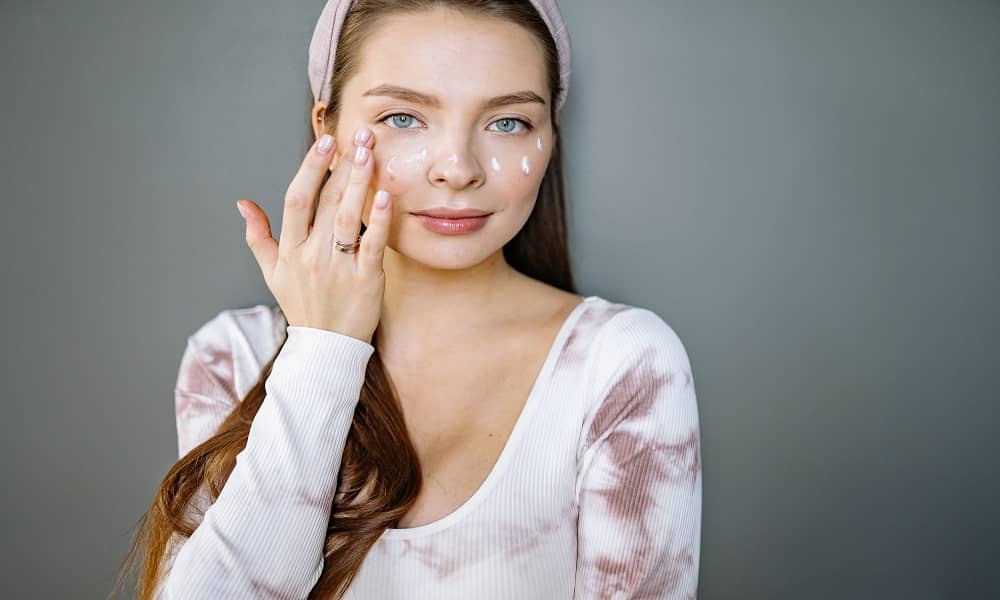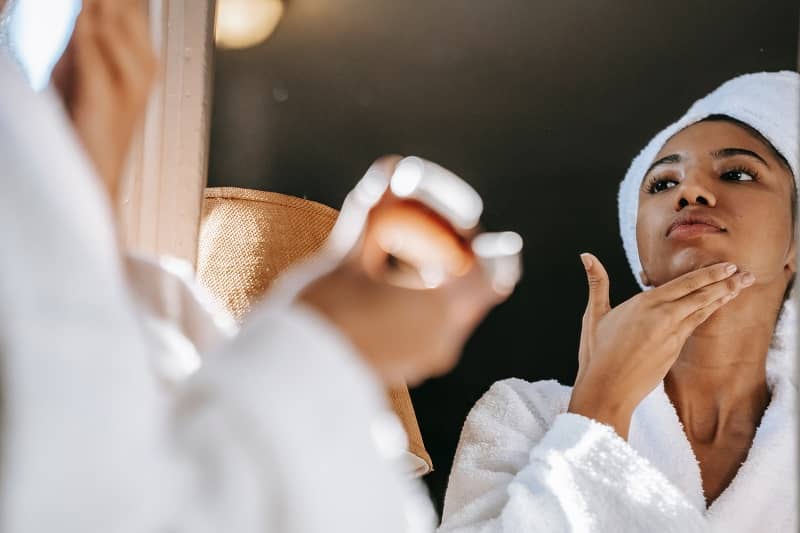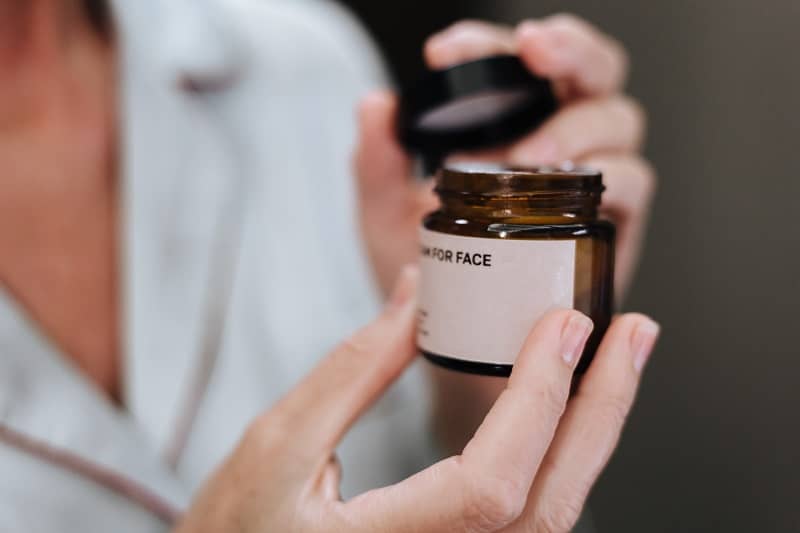


22 Nov Is Retinol Good for Skin | What It Does & When Should You Use It?
“Should you use Retinol?”
Is it really the beauty secret of today’s modern woman?
Well, to be honest, I have been pondering a lot about this holy grail of skincare lately.
What is retinol for skincare and the beauty world can be understood from the fact that it has become a common household name and is a consistent part of today’s anti-aging beauty products!
However, while this derivative of vitamin A has a long trail of benefits, there’s still so much uncertainty.
Nevertheless, if you’ve been wondering “should I use retinol”, worry not my queens, I got you covered!
What Retinol Does For Skin?
Coming from a retinoid family, retinol is synthetically derived from vitamin A; which, when applied topically, stimulates collagen synthesis and boosts the skin cell turnover.
It is a skin-friendly ingredient that is used in innumerable skin products.
Additionally, not only does it stimulate the production of new blood vessels in the skin but also reduces the pigmentation leaving your cheeks with a natural blush.
But all is not well with the use of retinol. As with any other ingredient, retinol is also notorious for some adverse reactions.
It comes with its fair share of the aftermath, so it’s justified if you’re skeptical of whether you should use retinol or not.
Well, we’ll be comparing both sides to really figure out if you should be using retinol or not.
Should I Use Retinol: Is It Good For Skin?


Apart from being a gold-rated anti-aging ingredient, it alters the behavior of skin cells and makes your skin smoother and radiant.
It’s pretty evident, in fact, why beauty lovers and skin enthusiasts go gaga over this skincare ingredient.
Retinol has many known benefits and, having said that, let’s first have a detailed discussion over the benefits of retinol for the skin.
Skin Benefits Of Using Retinol
Retinol has some incredible benefits to serve your skin.
Here are some of the benefits of retinol for skin and why you should be using it in the first place:
#1. Fights The Signs Of Aging
Retinol is a popular remedy for the many signs of aging.
It enhances cell turnover, stimulates the production of collagen, and binds the retinoid receptors of the skin to fight aging signs.
Moreover, it improves the skin’s ability to retain water; hence, preventing the formation of fine lines and wrinkles.
The use of retinol in treating naturally aged skin is even clinically backed.
In numerous studies and observations, it was found out that application of retinol for 7 days reduced MMP, collagenase, and gelatinase with a concurrent increase in collagen production and fibroblast growth in the studied tissues.
Hence, it was concluded that retinol can be effective in treating aging and photoaging.
#2. Provides Even Skin Tone
Retinol not only works on making your skin look younger but also even tones your skin.
It brings out the better version of your complexion. Moreover, retinol aids hyperpigmentation and reduces sun and age spots. Thus, leaving your skin even-toned.
#3. Raises Collagen Production
Retinol successfully slows down the enzyme that breaks down the production of collagen and elastin.
Collagen is a naturally produced skin protein that is responsible for youthful skin. However, its natural production declines as soon as you touch 30.
Hence, adding retinol serum to your skincare routine turns back the time for your skin.
#4. Minimizes Skin Breakouts
Interestingly, applying retinol can also prevent acne. It aids oily skin by preventing the formation of comedones.
By unclogging the pores, retinol clears the skin and prevents further skin breakouts. As a result, there will be fewer acne scars and more clear skin.
#5. Promotes Elasticity and Brightens the Skin
By triggering natural collagen production and enhancing cellular turnover, retinol leaves behind nothing but a more brightened and baby soft skin.
Adding to this, it also reverses skin damage including the thickening of the outer skin layer. It improves the texture of the skin.
And as per the reports of a study, retinol and its active metabolites are the first-generation retinoids and can penetrate the important factors in mature skin therapies, such as stratum corneum, cellular metabolism, age, and cardiovascular function.
Undoubtedly, there’s nothing like retinol for smoothening skin. But before you slap your body with retinol, try to develop retinol tolerance to avoid its side effects.
Side Effects Of Retinol
Retinol has countless skin benefits. However, it typically takes some time to adjust to the skin.
Some of the customary side effects of retinol are:
- Dryness and flakiness of the skin
- Redness and peeling of skin
- Breakouts and irritation
Moreover, if you’re already dealing with eczema and rosacea, you must avoid using retinol.
Adding to this, pregnant and breastfeeding women or any woman planning to get pregnant should also avoid using retinol.
Therefore, even though retinol has a positive impression when it comes to skincare, you must be informed of its flip side as well before you implement it in your skincare regime.
Note that all these side effects of retinol are mild, and, if used properly, retinol is a boon for your skin.
When Should I Start Using Retinol?



Now the most asked query regarding this magical ingredient is when should I use retinol?
According to scientists, the earlier you start to work on the signs of your aging, the better it is.
And while there’s no particular time to use it, introducing anti-aging ingredients in your skincare routine in your 20s is the best approach.
The moment you touch your 20s, your skin starts to lose its natural elasticity and shine. First slowly, then rapidly, if left uncured.
However, it doesn’t mean you should start slathering your skin with retinol rigorously.
So…
How Often Should I Use Retinol?
Be gentle while introducing retinol to your skin.
To clarify, using it often and too much will lead to skin irritation, redness, and other negative effects.
And for this reason, it is recommended to apply retinol in the evening in a pea-sized quantity after cleansing and drying your skin.
Also, in the beginning, limit your use to once or twice a week to help your skin adapt to it. Later, you can gradually increase the frequency as per the requirement.
Not only this, but it is also important to know how to use retinol serum to get better results.
How To Use Retinol Serum?
In the beauty world, retinol is the closest anti-aging ingredient to magic. And for this magic to work properly, you need to cast the spells correctly.
That is to say, for retinol to show its best results, you must know how to use it.
Here are some of the points that’ll help you understand how and when to use retinol in your routine.
#1. Always use retinol at night because the sunlight deactivates the effects of vitamin A.
#2. Always use retinol after cleansing and drying your skin.
#3. Results won’t take place if you aren’t patient enough. Hence, use it for 3-6 months to witness a visible difference.
#4. If you don’t want your retinol to lose its anti-aging properties, always close the cap after use because it oxidizes when it comes in contact with oxygen and light.
#5. If you are applying retinol for the first time, always do a patch test first.
#6. Always apply retinol gel, cream, or serum on the entire face and let it absorb and dry before you apply moisturizer.
#7. When using retinol, don’t forget to apply moisturizer 2-3 times a day to avoid dryness of the skin.
#8. Sunscreen is a must. Retinol causes photosensitivity; which means you are at high risk to get sunburn even if you don’t burn naturally. Hence, always apply sunscreen of SPF 30 or higher when using retinol.
#9. Carefully choose the strength of the retinol. And to establish skin tolerance, start with 0.01% to 0.03%.
#10. Consult a dermatologist to determine the required concentration of retinol in your skin.
These were some of the dos and don’ts of how to use retinol serum properly.
It’s hard to believe that one product can do so much for your skin. When used properly, this miracle ingredient has a myriad of benefits.
Moving on, right below are some of the questions commonly asked by readers. Hopefully, you’ll find it informative.
FAQs
In A Nutshell
So, if you are in your 20s and want clear skin with natural blush and shine, grab your favorite retinol serum and implement it in your skincare routine.
Start slow and gradually move up the frequency of use to avoid side effects and skin reactions. Moreover, take care of all the other above-mentioned tips while using retinol, and you’ll reap all the benefits without adverse reactions.
Now, go on and give your skin the pampering and love it deserves.
I would love to know your thoughts on the use of retinol or what was your experience with it if you’ve used it already. And if you’ve any more queries, leave them down below or get in touch with me directly at regina@horizonclinics.org
ALSO READ: Do Growth Factors in Skin Care Work and Are They Safe?



No Comments